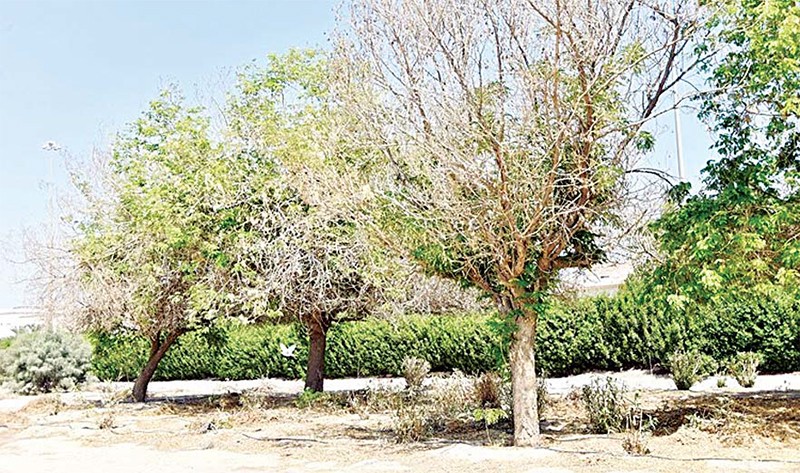01/10/2020
01/10/2020
KUWAIT CITY, Oct 1: Streets and walkways are experiencing “deforestation” despite the huge sums of money being spent to improve afforestation in various parts of the country due to its positive health impacts and aesthetics, reports Al-Anba daily. On walkways and semi-circular bridges on the Sixth Ring Road, the Arabian Gulf Street and the main roads, entrances to cities and internal streets, dry trees can be seen with bare branches raised towards the sky as if they are crying for help but with no answer. It is worth mentioning that the autumn season and the changes that accompany it are expected soon.

The summer heat affected the longevity of these plants along with the repercussions of the COVID-19 outbreak this year, which paralyzed the country. However, all these factors are not sufficient to justify the tragic situation of these trees that had been planted based on plans and projects that cost a lot of money.
During the prevailing climate, methods of maintenance, irrigation and special care programs are taken into account so that these funds are not wasted, and the plantation of the trees do not turn into something that distorts the general landscape instead of beautifying it. In addition, the interest in cosmetic agriculture projects in Kuwait started in the early 1970s. Kuwait was one of the first Gulf countries that was interested in this field, as it annually celebrates the Green Day in October of every year. Since the 1980s, Kuwait has sent students to the best international universities to study agricultural sciences in a bid to develop beautification programs in the country and improve the living environment.

While some believe that the inability to improve and develop this sector is due to technical reasons, preceded by reliance on old methods and not keeping pace with technological development in this field, which negatively affects the quality and continuity of cosmetic agriculture, others believe the reasons are human-related due to the migration of competent agricultural experts because of lack of incentives, and their replacement with non-specialized labor force. This matter has been placed before the concerned parties with the hope of finding practical solutions that can revive life of these trees as well as restore Kuwait’s leadership in cosmetic agriculture among the countries of the region.


